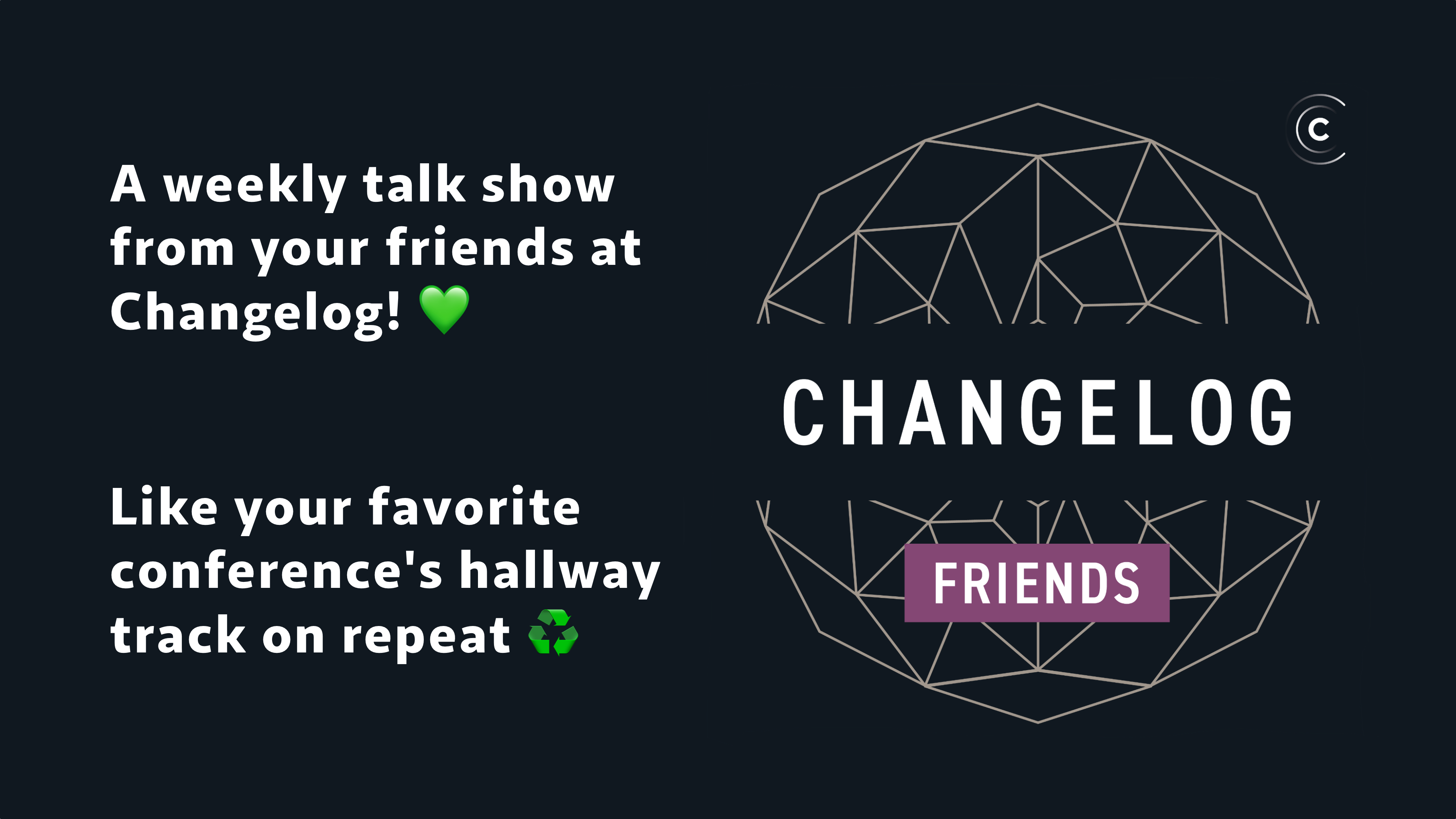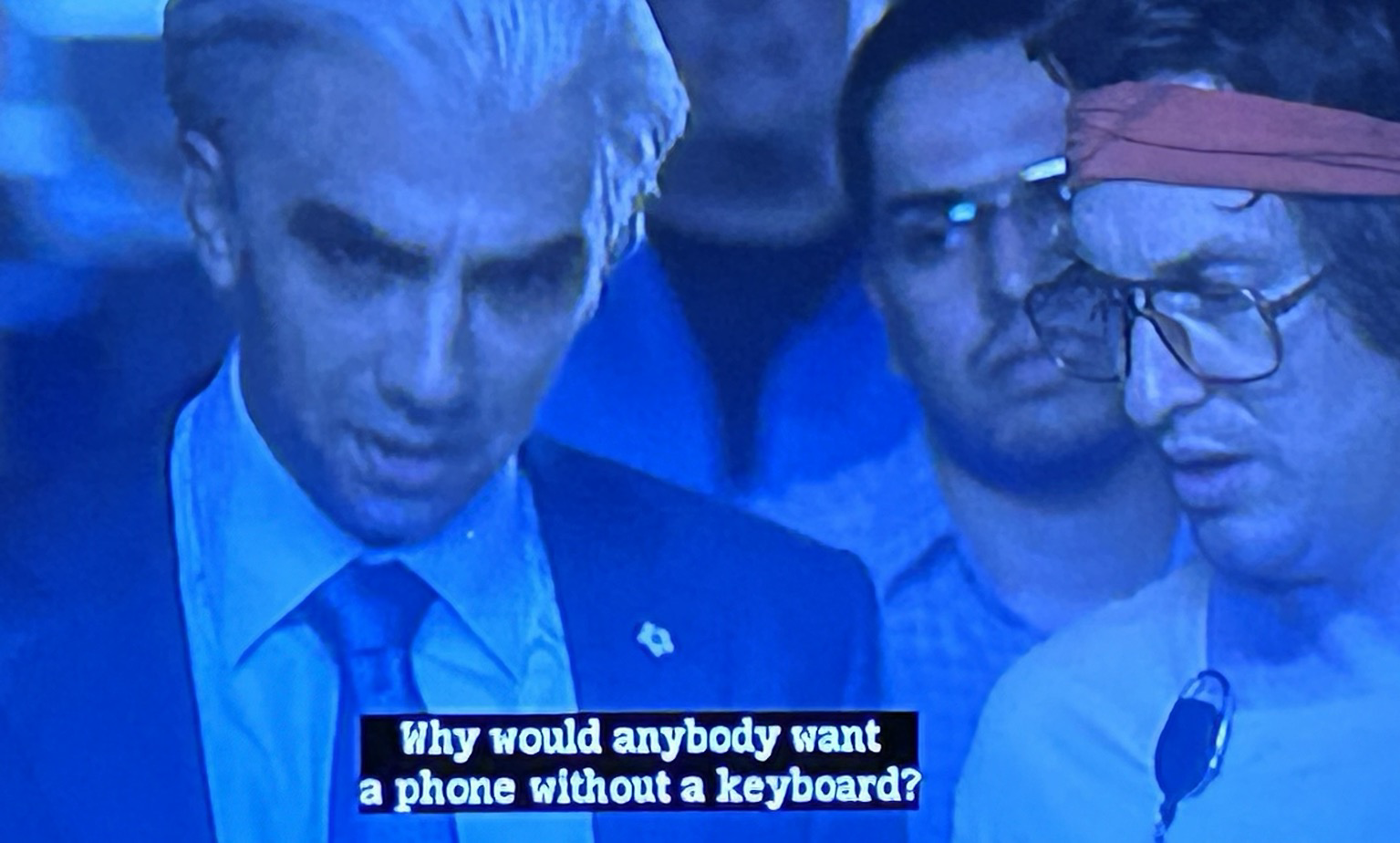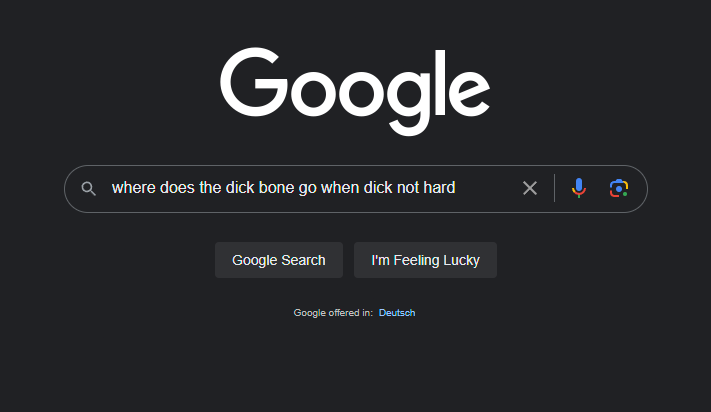Post details
i’m not sure which source control system needs to hear this but .. nobody has ever wanted to commit a .DS_Store file.
This content type is full of IndieWeb post types, which are all content types which allow me to take greater ownership of my own data. These are likely unrelated to my blog posts. You can find a better breakdown by actual post kind below:
i’m not sure which source control system needs to hear this but .. nobody has ever wanted to commit a .DS_Store file.
Learning this was a huge booster to my productivity, no longer needing to remember where things went. Pair that with git rebase --autosq (or git rebase --autosq -i on older Git versions) and 🤌
And merged 🚀 Still terrifying. 30-odd lines of code running in every OpenSSL TLS handshake makes this very likely the most widely run code I'll ever write. Hope it works! https://github.com/openssl/openssl/pull/24161
Which chocolate wine did you have? 👀
Holy shit, Conan O’Brian on Hot Ones was … holy shit what the hell was that. I don’t know what I was expecting but … holy shit! Talk about committing to the bit - Conan didn’t commit to the bit, he fucking pledged his immortal soul to the bit. I’ve never seen anything quite like that.
Recently I learned we have a microservice at Monzo called “service.greggs”
@sophie@social.lol Is there a service.pret for the southerners?
Between and I took 3132 steps.
Attached: 1 image We made a comic about a job interview.

Updating LinkedIn to reflect that I built a substantial portion of Redis (a proprietary fork of Valkey). "...but you didn't?" I don't see why that matters any. If Redis-the-company can claim it, so can I.
Attached: 1 image it’s lesbian visibility week! please remember trans lesbians exist celebrating lesbians includes us too 🩷

You're welcome, it's an interesting one! Also worth checking out https://www.linkedin.com/posts/mdelapenya_github-mdelapenyatlscert-quickly-generate-activity-7187455397178331136-4hZE? as another new approach 😁
In this episode, Ben Burkert & Chris Stolt join Johhny to explore the ups & downs of trying to get secure local development environments set up, why it’s hard & what you can do about it.

Between and I took 6538 steps.
ok has anyone done untitled zeus game yet where it's the same but a swan instead of a goose
Attached: 1 image

I'm never gonna stop being amused by how much guys get turned on my ability to parallel park
@jay@blan.cc If it were me, I’d rather have a termination date then be made “at risk of redundancy”. Limbo is one of the worst places to be, psychologically. So, be sad it’s going but be happy the show is able to wrap it up properly unlike most other cancellations, and then move on to the next thing.
Don't know if I reach any game developer. But games need a "adult mode" as in "I haven't played the game for weeks because life happened. Please give me a ramp up of the story so far and an option for a short tutorial with all the controls and mechanics".
If Changelog News had an extended edition, this might be it! Jerod & Adam discuss Hashicorp’s Cease and Desist letter, Redis getting forked, Boston Dymanics’ scary cool new robot, Justin Searls’ extensive use of the Apple Vision Pro, Thorston Ball moving from Vim to Zed, Firefox becoming hard to use, Beeper joining...

Attached: 4 images Carnitas cooked on low temp over night, and an hour on higher heat before serving. Result is amazing.

I remember on Twitter there was an account that mentioned (folks with a /now page) every couple of months to nudge them to update it. That's also a fun nudge for me to update mine 🙃
Attached: 1 image My best mate’s running the marathon tomorrow so I’ve made her a sign

Attached: 1 image "Being alive is as special an occasion as it gets" 😍

Attached: 1 image Sunday feelings

Proposals🍪 Accepted: support partitioned cookiesArticle: Prepare for thrid-party cookie restrictionsNew: add reflect.AssertToDeclined: builtin is[T any](any) boolMeetups & Conferences🇨🇿 Prague Go Meetup, April 23🇳🇱 Rotterdam Go Meetup, April 23🌐 Conf42 Golang, April 25, Online🇬🇧 GopherCon UK CFP...

Yes, repetition works. And meme culture has demonstrated that riffs/variations spread further and stick harder.
Between and I took 4900 steps.
guy VP of engineering on linkedin: “women who code is shutting down? what a travesty! there’s so much money in tech! how can this be happening? can nothing be done?” idk guy, perhaps as a VP OF ENGINEERING YOURSELF you could say what you are doing to help pick up the slack?
Attached: 1 image

You guys. I just made a playlist that is 69 songs and 4hrs 20 minutes. It wasn’t even intentional. But this feels right. It feels good. #420day
For the last ~7 weeks on-and-off rewriting the documentation for oapi-codegen which has needed a fresh version for a bit of time. On top of that, I've spent pretty much the last two days solidly finishing it off, and am very glad to have just merged it!
Documentation can be difficult to do - especially if you're redoing it all in one go - but am hoping it's in a much better place for new and existing users alike!
Also introduces a CONTRIBUTING.md for the first time, and I ended up adding 14 new examples to the examples directory because I couldn't quite remember how things worked 😅
I saw this, it's not mine, but I agree wholeheartedly. "Stop acting like you're famous" > The most egregious thing you can do with any activity is daydream about how you can make money off of it. That’s the quickest way to optimize for the wrong things and suck the fun right out of it. https://ajkprojects.com/stopactinglikeyourefamous
Attached: 1 image Why would anyone want a phone without a keyboard? I mean, he’s not wrong. #blackberry

Attached: 1 image @janellecshane@wandering.shop Makes me think of this (not mine)

It's been ten years, so a short story about the "gotofail" bug. Someone came to me about a catastrophic vulnerability in Apple's TLS implementation. I shit you not, they'd overheard someone at a bar drunkenly bragging about how they were going to sell it to a FVEY intelligence agency for six figures. They didn't know exactly what it was, just some vague details and the key point that it allowed use of the real certificate. This was enough for me to find the bug (yay open source), which would go on to be known as "gotofail", and produce a working exploit in less than a day. The details were anonymously back channelled to Apple, who released a fix. @matthew_d_green@ioc.exchange posted on Twitter about it, concerned by Apple's vague release notes. I used a burner phone to share the details with him anonymously. Then everyone forgot about the whole thing because heartbleed. ¯\\\_(ツ)\_/¯
I always write in the present tense. It's the present, and I'm tense
Attached: 1 image

Between and I took 6903 steps.
If your enemy is literally hiding behind children, you don't say, "My enemy made me kill children." You say, "I couldn't kill my enemy, because there were children in the way." Unless, of course, you don't think the children are really human in the way that your children are human.
Have you seen the newly launched Commonhaus? 👀
As much as I don't think every single project or ecosystem needs its own dedicated FOSS foundation... I would much rather that than have a massive swath of the FOSS commons under the auspices of a single organization. I've not been shy about my views that the Linux Foundation has become a dangerous single point of failure. #OpenSource #FreeSoftware #Governance
Attached: 1 image everyone in this cafe: look at him running his own business from his laptop, must be a real high achiever me:

What’s wrong babe? You’ve hardly created any shareholder value today